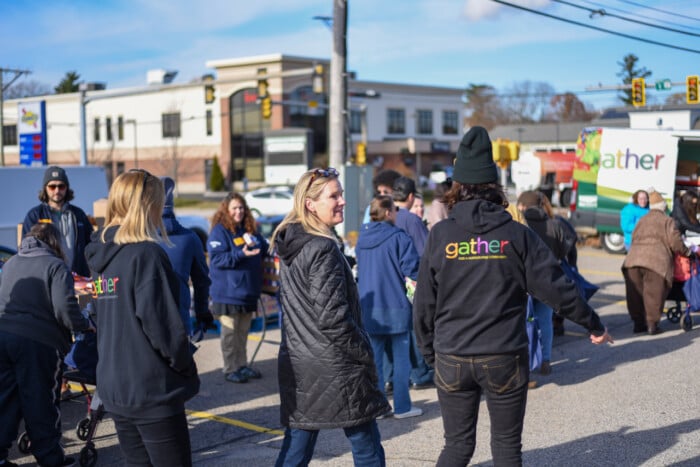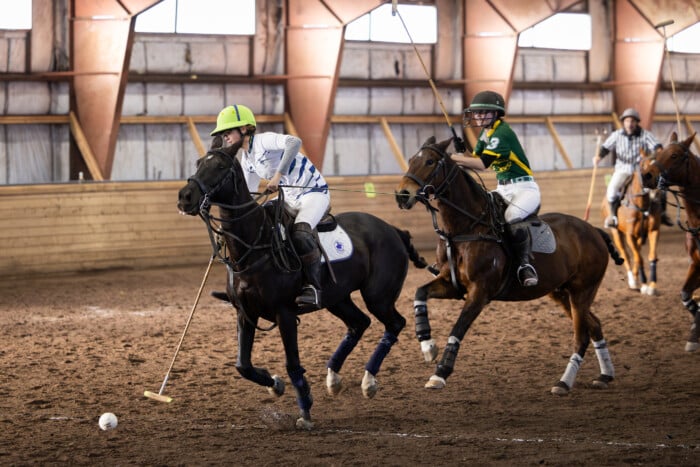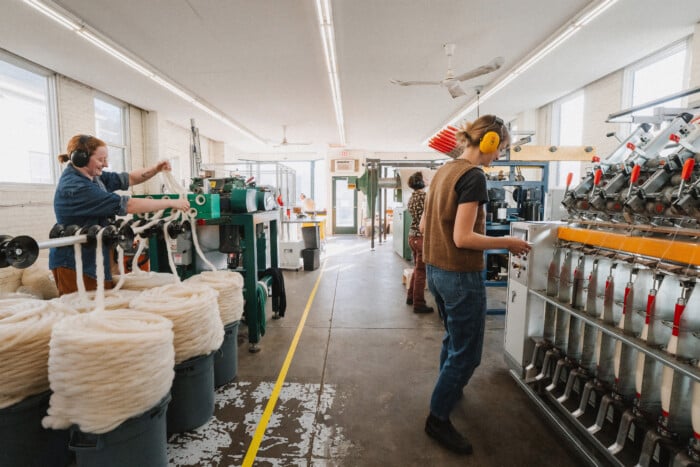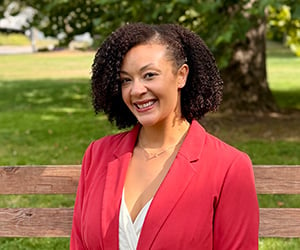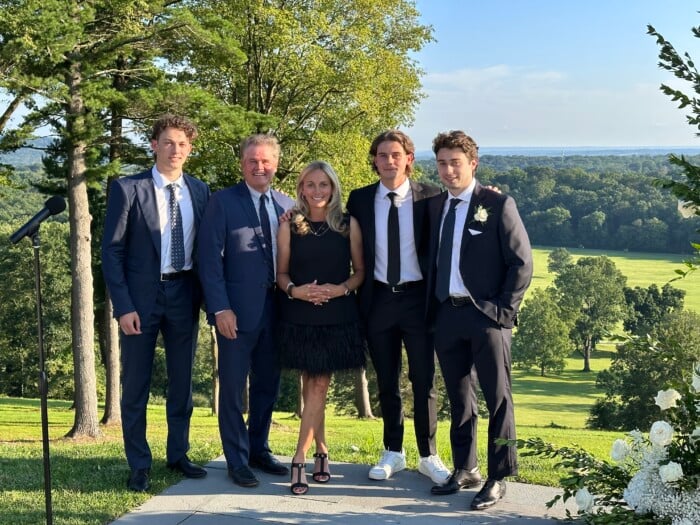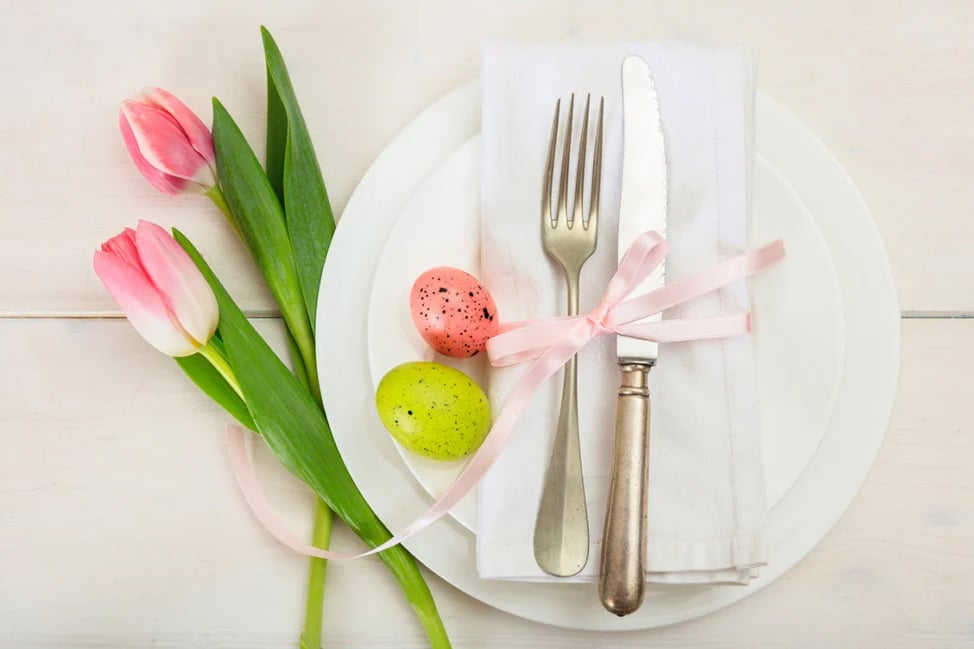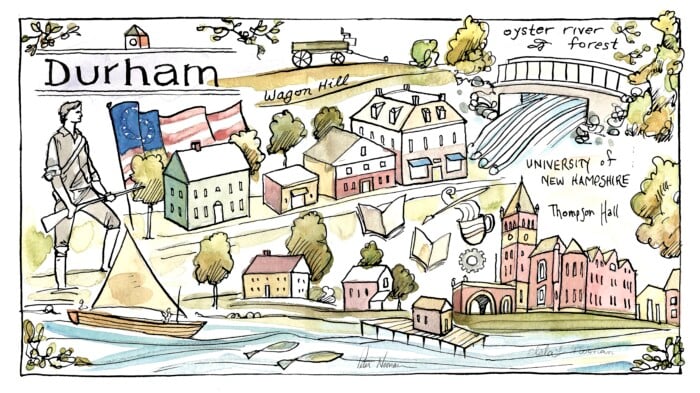In Their Own Words with NH Author, Sy Montgomery
Granite State author Sy Montgomery reveals the hidden world of chickens in her new book, ‘What the Chicken Knows’

New Hampshire author Sy Montgomery has traveled the world to write about the wonders of the animals she meets, like hummingbirds and hawks.
In her new book, “What the Chicken Knows,” Montgomery shares some surprising discoveries about chickens: They’re smart, have good memories and look out for one another.
Montgomery spoke with New Hampshire Magazine recently about the busy, bustling world of chickens, her previous flock of “ladies,” and how we’re more like feathered fowl than we think.
NHM: Why did you decide to write a book about chickens now?
Sy Montgomery: During the pandemic, people got chickens — a lot. And some people, when the pandemic ended, just dumped their chickens in the woods or dumped their roosters in the woods. And I worry about those birds — it was time to do another bird book on chickens.
I think chickens may be having a renaissance. COVID was a horrible thing. But even that had some gifts, and among them was introducing a lot of people to chickens. Everyone was at home, and so many social events disappeared. People got pets, people got chickens for the eggs a lot of times, and then fell in love with the creatures more than they did with the eggs.
NHM: I enjoyed reading this book. How often do you get a book to read just about chickens, where it’s not a scientific book?
Montgomery: Or a book about how to raise chickens and slaughter them, or how to use chickens for your life. Instead, this is a book about how to enjoy the company of chickens and really appreciate them for who they are, not just what they can give us in terms of eggs or meat.
NHM: It does seem like people automatically say: What can the chicken give me?
Montgomery: I think sometimes society makes us look at our relationships with others in a transactional way. I’ve written 38 books about animals, and one of the questions I often get is: What is this animal good for? And I’m always flabbergasted by that question. They are for the same thing we are for: loving this life, enjoying this life, hopefully adding some beauty and drama to this life. But animals exist for their own sake, not for our sake, but because we’re all part of the natural world, we do all need each other.
NHM: Where did chickens get this reputation for being transactional?
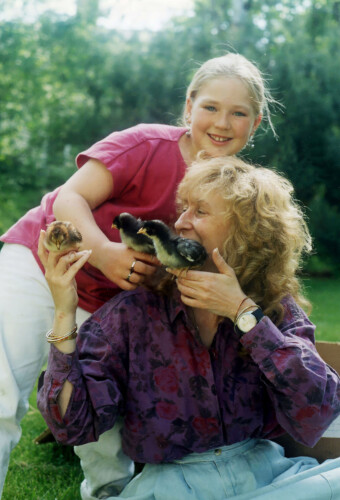
Sy Montgomery and her neighbor Jane Cabot get friendly with a few baby chicks. Montgomery is sharing her vast knowledge about chickens in her new book, “What the Chicken Knows.” (file photo)
Montgomery: They come from jungle fowl who live in Asia. I’ve seen them in the wild, and they look just like the guy on the Kellogg’s cornflakes old cereal box. They look like Mr. Cock-a-doodle-doo, but they’ve been domesticated for a very long time. We have so many different chicken breeds, you would never guess that they are all the same species. Not everyone can even recognize a robin, not everyone can even recognize a crow, but everyone can recognize a chicken. And we think we know them, but we don’t, yet they are just full of exciting information that teach us: The world is so alive and so varied and just gobsmackingly smart in ways that we often don’t know. And when we find these evidences of memory and intelligence and emotion in places we don’t expect them, I think it just fills us with awe and gratitude, and those are the things that humans want desperately these days. They’re essential for happiness, and chickens can give us so much happiness as living individuals, as opposed to something floating around in your bowl or on your plate.
NHM: (People) think chickens are just walking around, pecking, and that’s it, right?
Montgomery: Right. And it’s so not true. Just like anything else: Attention pays. If you spend time watching and getting to know them, they’re going to reveal themselves to you. They’re all different, just like we are. They have very distinctive personalities, and they also have a flock culture, which became very evident to me when we got a new tenant who came with her own flock. And her flock was totally different from my flock. My flock was: They were ladies, they were polite, they were gentle, they were not drama queens. They didn’t fight with each other. There wasn’t a lot of pecking. Hers? They were all very distinctive, interesting personalities, and some of them made up games to play with her.
Chickens have voices, and they say a lot of different things. Like people, they have their own kind of chicken language, and we understand some of it: There’s a predator very far away that you should just be alert to, versus, there’s an aerial predator coming fast nearby, versus, there’s some decent food over here, versus, there’s really good food over here. A dog can growl and a cat can hiss. Chickens can also threaten other chickens, and they also have postures that they use to threaten other chickens. They’ll stamp. They’ll drag their wings on the ground. They’ll fluff up to look extra big.
NHM: You found that chickens remember the exact places where they would hang out. What other talents do chickens have?
Montgomery: We’ve known for many years that birds can see ultraviolet light. Birds have terrific eyesight. They completely remember their surroundings, and they’re attached to their surroundings. When they do go to the perch or the spot that they did before, it shows you not only that they remember it, but that they care about it, and that that’s important to them. And chickens are very gifted with spatial talents. It’s amazing. They’ve done all kinds of experiments showing that the chickens can locate the center of any given place, even in the absence of landmarks. They’re very smart in ways that you can see if you pay attention.
We forget how animate our world is, how full of life and emotion and story and joy and fear. The world is so much fuller of stuff to amaze us that we don’t even know, and so our job is to watch and be awed.
Chickens are so good at recognizing individual chicken faces, as well as individual human faces. And people are astonished to learn that that is the case. It is now well-documented that all birds are direct descendants from the theropod, or meat-eating dinosaurs. So the dinosaurs are not extinct. They just are flying around. They’re at your bird feeder. They’re on your Thanksgiving table.
NHM: You keep your chickens until they pass on, is that correct?
Montgomery: I always have. My hens were free to range all day, wherever they wanted, all over the 8 acres that we have. I no longer have chickens of my own, but chickens are still in my life, and as you read the book, you’ll see what happened.
NHM: You’re a vegetarian; why did you make that choice?
Montgomery: Today it’s possible to get meat from animals who are humanely raised. But back then (around 1980), unless you lived on a farm or near a farm …. there was a farm where we could get milk that we met the cows, but I never ate meat again as soon as I found out about factory farming. There is nothing more delicious than the eggs of a chicken you know personally, who’s eating bugs and worms and all the good stuff they’re supposed to eat, compared to the supermarket eggs.
NHM: I’ve had eggs that came straight from a farm and you could tell the difference.
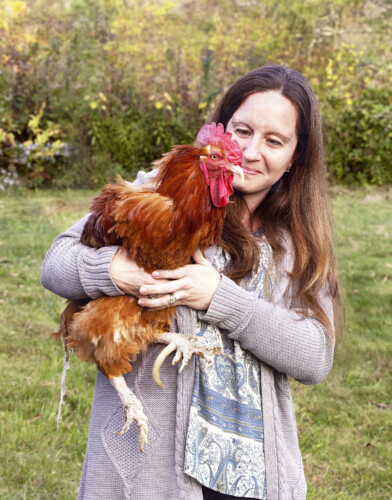
Montgomery’s neighbor, Ashley Naglie, calms Carlos, a mixed breed rooster, by cradling him in her arms. Naglie says her animals, including ducks and a turkey, are all her pets and have names and “different personalities.”
Montgomery: They’ve got those bright yellow yolks, and they have real flavor to them. It’s just wonderful. And it is possible at the grocery store to get some pasture raised. It’ll say “pasture raised” on it. “Organic” means nothing as far as animal welfare. Pasture-raised means that they had regular exposure to sunshine, grass and bugs, and space to be chickens. Those are the eggs to buy. In New Hampshire, lots of people have chickens. Our little mom and pop grocery stores will carry eggs from your neighbors, and that’s terrific. I’m happy to support them, but I’m getting my eggs from chickens I know personally. That’s the best of all.
I’m not saying that everyone has to be a vegetarian to be an ethical person at all, and I’m not dissing people who eat meat. I’m just happy with the choices I’ve made. And if anyone wants to try out some delicious vegetarian food, come on over.
NHM: Should more people in New Hampshire try to have chickens if they have the space?
Montgomery: If you think you can give your chickens a good life, it’s very, very rewarding. But because these are living animals, you don’t want to rush out, take home some animals and then not be able to give them a good life. We’re lucky enough that even if we don’t have chickens ourselves, often a neighbor does.

